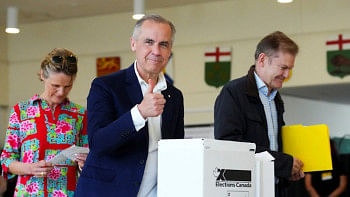Pension Reform Plan: Russian parliament approves Putin's amendments
Russia's parliament yesterday unanimously approved President Vladimir Putin's amendments to a deeply unpopular pension reform plan that has led to a rare outburst of public anger in the country.
Parliament's lower house, the State Duma, approved Putin's proposal to soften the reform, raising the state pension age for women by five years to 60, instead of eight years to 63.
In a rare televised address in August, the Russian president proposed a number of concessions, in an apparent attempt to stem a major fall in his approval ratings.
"We have reached a consensus on this matter and everyone has supported the president's amendments," said Duma speaker Vyacheslav Volodin yesterday.
The reform bill was approved by the State Duma in a first reading in July. It has to be approved in a key second and third reading before being signed into law by Putin.
The reform -- that would see Russian men retire at 65 instead 60 -- has sparked a rare outburst of public anger, with tens of thousands rallying across Russia in recent months.
Putin's announcement of the concessions has done little to pacify ordinary Russians.
Most are opposed to the hike in retirement age and critics said the reform would essentially rob ordinary people of their earnings.
Street protests have continued and the Kremlin faced a rare electoral crisis after candidates of the ruling party failed to win governorship polls in four regions this month.
Some 3,000 people demonstrated in Moscow last week against the reform in a protest organised by the Communist Party.
Heeding a call by protest leader Alexei Navalny, thousands of Russians took to the streets across the country to protest against the reform earlier this month.
The pension reform, which was announced the day the World Cup started in Russia in June, will be the first retirement age increase in the country in nearly 90 years.
Given the low life expectancy of Russian men -- 65 years -- many would not live long enough under the reform to receive a state pension.
Japan firm signs
with SpaceX for
lunar missions
AFP, TOKYO
A Japanese start-up is to send spacecraft to the moon in a deal signed with Elon Musk's SpaceX, the Tokyo-based firm said yesterday.
Private lunar exploration company ispace said it would blast a lander and rovers towards the moon on a SpaceX rocket on two separate missions.
The spaceware will first orbit the moon in mid-2020, followed by a moon landing attempt set for mid-2021.
It comes a week after SpaceX confirmed Japanese billionaire Yusaku Maezawa will be the first man to fly around the moon on a SpaceX rocket as early as 2023.
"We share the vision with SpaceX of enabling humans to live in space, so we're very glad they will join us in this first step of our journey," ispace CEO Takeshi Hakamada said in a statement.
Hakamada also told reporters the company chose SpaceX as it is "highly credible" and "capable".
SpaceX President Gwynne Shotwell said in a statement that the company is "proud to have been selected by ispace to launch their first lunar missions".
Hakamada said he could not reveal costs for lunar programmes.
The company has already collected nearly $95 million from investors.
ispace, which now has more than 60 employees, competed as one of five finalists in the Google Lunar XPrize, which offered $30 million in prizes but ended with no winner.

 For all latest news, follow The Daily Star's Google News channel.
For all latest news, follow The Daily Star's Google News channel. 



Comments